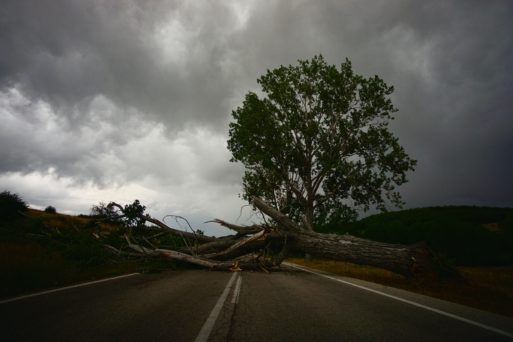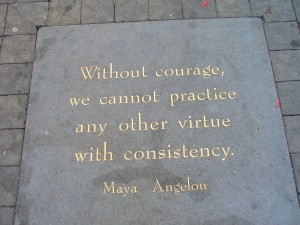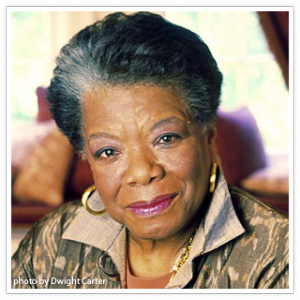
 This past Saturday, a friend and I went to check out Jack Kerouac Alley and City Lights Bookstore in the North Beach area of San Francisco. As a lover of literature, I was delighted by all the quotes by famous authors that are engraved in the ground. One of these was by Maya Angelou, and it is in honor of her that I’ve chosen “When Great Trees Fall” for this week’s installment. In fact, her quote is even appropriate to the poem’s message.
This past Saturday, a friend and I went to check out Jack Kerouac Alley and City Lights Bookstore in the North Beach area of San Francisco. As a lover of literature, I was delighted by all the quotes by famous authors that are engraved in the ground. One of these was by Maya Angelou, and it is in honor of her that I’ve chosen “When Great Trees Fall” for this week’s installment. In fact, her quote is even appropriate to the poem’s message.
Angelou opens the poem by discussing how even trees falling affects everything and everyone around them. But then she continues into what occurs when people, or “great souls,” (12) die: “When great souls die/the air around us becomes/light, rare, sterile” (12-14). These lines describe the first moments of shock that come when hearing of a death. The air becomes “rare” because we feel that the wind has been knocked out of us; the atmosphere seems to change entirely. She goes on, “Our eyes, briefly,/see with a hurtful clarity” (16-18). In these moments (“briefly”), we become highly attuned to our feelings and surroundings as we realize the weight of what has happened.
Next, the poet writes, “Our memory, suddenly sharpened,/examines,/gnaws on kind words/unsaid,/promised walks/never taken” (19-24). Our memories are “sharpened” because all we have left of our loved one is the past. And I love the concept of the memory “gnaw[ing],” because it perfectly describes the miserable feeling of regret that follows, and of knowing that the events in our memories can never quite be repeated. “Kind words” are left “unsaid,” and “walks,” though “promised,” can never be taken.
In the following stanza, Angelou states, “Great souls die and/our reality, bound to/them, takes leave of us” (25-27). All feeling of what life, or “our reality,” is, feels “bound to them,” the people that have gone; and so when they are no longer with us, we lose our sense of what is real and what isn’t. She elaborates, “Our minds, formed/and informed by their/radiance,/fall away” (32-25). The “radiance” of the people we love “form[s]” our minds because they are such a big part of our lives, and that is why it is so dramatic for us, as in, our minds “fall away,” when our family and friends depart. Angelou explains, “We are not so much maddened/as reduced to the unutterable ignorance/of dark, cold/caves” (36-39). We don’t go crazy, or “maddened,” by loss, but rather we feel alone, as if in “dark, cold caves,” and unable to speak, unable to move. It’s simply a profound feeling of isolation.
But as sorrowful as her previous metaphors are, her final stanza offers hope, and lets us know that it is okay that our loved ones have died:
And when great souls die,
after a period peace blooms,
slowly and always
irregularly. Spaces fill
with a kind of
soothing electric vibration.
Our senses, restored, never
to be the same, whisper to us.
They existed. They existed.
We can be. Be and be
better. For they existed.
After enough time passes, “peace blooms”; out of the dirt comes the beautiful blossom of acceptance, even if it is “slowly and always irregularly.” Eventually, “spaces fill”: the feelings of emptiness go away. “Our senses” are “restored, never to be the same.” We do return to normalcy, even if it’s a different feeling than what we’re used to. It means we’ve grown as human beings. And we reach true maturity when we are able to admit that we have lost a part of ourselves. However, that part has not left us high and dry, but left an impact on us: we can “be and be better. For they existed.”

 “When Great Trees Fall” by Maya Angelou
“When Great Trees Fall” by Maya Angelou



 Debating Medical Aid in Dying
Debating Medical Aid in Dying
 “Help Me, Helen”
“Help Me, Helen”















